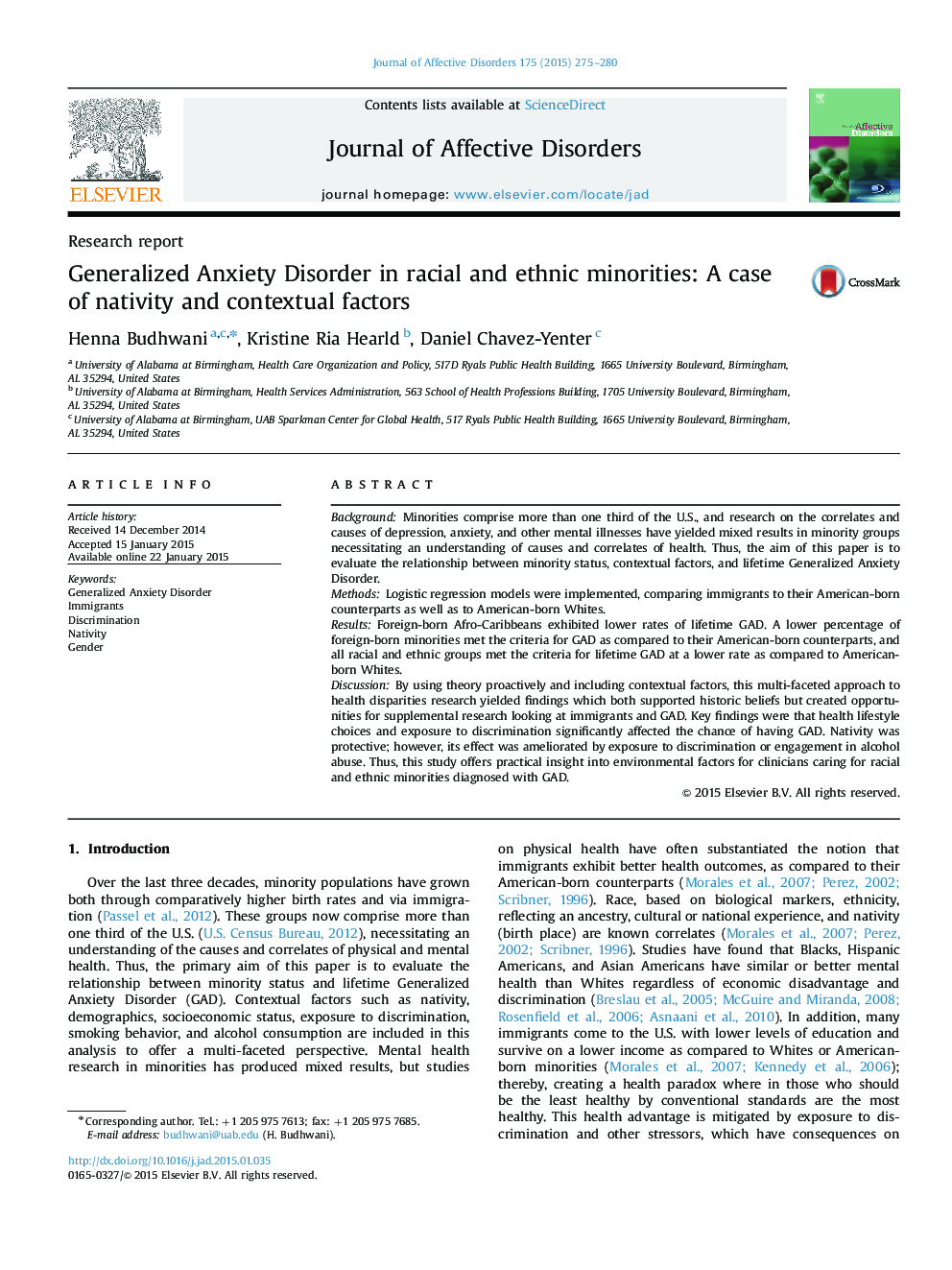| Article ID | Journal | Published Year | Pages | File Type |
|---|---|---|---|---|
| 6231985 | Journal of Affective Disorders | 2015 | 6 Pages |
BackgroundMinorities comprise more than one third of the U.S., and research on the correlates and causes of depression, anxiety, and other mental illnesses have yielded mixed results in minority groups necessitating an understanding of causes and correlates of health. Thus, the aim of this paper is to evaluate the relationship between minority status, contextual factors, and lifetime Generalized Anxiety Disorder.MethodsLogistic regression models were implemented, comparing immigrants to their American-born counterparts as well as to American-born Whites.ResultsForeign-born Afro-Caribbeans exhibited lower rates of lifetime GAD. A lower percentage of foreign-born minorities met the criteria for GAD as compared to their American-born counterparts, and all racial and ethnic groups met the criteria for lifetime GAD at a lower rate as compared to American-born Whites.DiscussionBy using theory proactively and including contextual factors, this multi-faceted approach to health disparities research yielded findings which both supported historic beliefs but created opportunities for supplemental research looking at immigrants and GAD. Key findings were that health lifestyle choices and exposure to discrimination significantly affected the chance of having GAD. Nativity was protective; however, its effect was ameliorated by exposure to discrimination or engagement in alcohol abuse. Thus, this study offers practical insight into environmental factors for clinicians caring for racial and ethnic minorities diagnosed with GAD.
